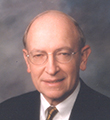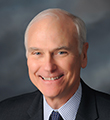Kansas Legislative Insights Newsletter | January 12, 2018
A Plan of His Own
Article One, Section Five of the Kansas Constitution states, “At every session of the legislature the governor shall communicate in writing information in reference to the condition of the state.” Over the years this communication has become known as the State of the State address and normally occurs during the first week of each session when the governor makes an oral as well as written presentation to a joint session of the legislature. It is a golden opportunity for a governor to promote his or her legislation agenda and to set the political tone for the session.
This year Governor Brownback delivered his eighth – and last – State of the State address on Tuesday to a joint legislative session in the House chamber. His speech was not atypical for a State of the State address. It was filled with the recognition of state officials, justices of the Kansas Supreme Court and many deserving Kansans.
The remainder of the address was devoted to touting successes in positive statewide employment figures, the development of wind energy, economic development achievements, especially in the aircraft industry, and positive strides in state water policies. Most of the comments on these issues were brief and general in nature, with one notable exception: school finance.
Brownback announced that he was recommending $600 million new dollars be dedicated over the next five years to funding school districts throughout the state. He stressed these additional dollars should be used to meet several goals, such as raising the statewide graduation rate to 95% and getting at least 75% of those graduates into some sort of post-secondary learning environment, be it traditional, technical or military. He also emphasized that his plan did not include any increase in state taxes.
Needless to say, Republican and Democrat legislators were quick to respond to this proposal. Ironically, the governor got more favorable comments from Democrats than from Republicans, mainly because Democrats see the additional $600 million as a reasonable start for a new school finance plan, whereas many Republicans would prefer to start negotiations at a lower dollar level.
What both parties did agree on was the governor’s comment that he was not recommending any tax increases to pay for the new funding. Legislators were virtually unanimous in saying that his proposal might work for one year by making further budget cuts, but it would not be sustainable in the second year and beyond without a tax increase.
It would not be an understatement to say the governor’s school finance and other increased budget recommendations were not well received by his own party, especially in the Senate.
Almost everyone around the statehouse is assuming that Governor Brownback will be confirmed some time soon by the U. S. Senate to an appointment as Ambassador at Large for International Religious Freedom, at which time he would step down as governor. “Soon” is the operative word. It may mean within the month or several months from now. If it proves to be the latter, then the governor would have yet another chance to use his veto powers to exert his influence on whatever school finance plan the legislature might send him.
The details of the governor’s budget proposals were released on Wednesday. They contained recommended changes for the remainder of this fiscal year (FY 2018) and the coming fiscal year (FY 2019). If implemented by the legislature as submitted, there would be a balance of nearly $250 million in the State General Fund (SGF) at the end of FY 2018 (6/30/18) and $150 million at the end of FY 2019 (6/3/19). However, actions by the legislature on big-ticket items such as school finance and Medicaid (KanCare) could significantly impact these projected ending balances. By law there must be a positive balance in the SGF at the end of each fiscal year.
The Traditional Slow Start
Sessions of the legislature almost always start slowly, and this 2018 session is no exception. Relatively few bills have been introduced, and House and Senate committee meetings have focused on background information supplied by officers or staff from various state agencies or departments.
Bill introductions will accelerate in the coming days and committees in both houses will begin to meet on a regular basis, but significant floor debates won’t occur for at least a couple of weeks.
Bill Summaries
Listed below are selected bills that were introduced this first week. More information on each bill is available by clicking on the bill number.
AGRIBUSINESS
SB 263 – Creates the Alternative Crop Research Act allowing the Regents institutions in conjunction with the Kansas Department of Agriculture to do research and cultivate industrial hemp as an alternative crop. The Department of Agriculture is granted authority to promulgate rules and regulations to carry out the provisions of the Act. (Referred to the Senate Committee on Agriculture and Natural Resources, Senator Dan Kerschen, chair)
BUSINESS
HB 2457 – The bill – arguably companioned with SB 73, a holdover from the 2017 legislative session – would enact the Asbestos Trust Claims Transparency Act to establish a method for the court to use in determining whether a person filing a claim for an asbestos action has made a claim or recovered monies from any asbestos trust in the past. The bill would also establish rules for discovery and admissibility of trust claim materials and trust governance documents, and claims of privilege and confidentiality would be limited to those materials. HB 2457 and SB 73 represent a continuation of attempts at the state and federal level to prevent perceived abuses, including duplicative claims, in asbestos litigation. If HB 2457 passes, these provisions would apply to all asbestos actions filed on or after July 1, 2018. (Referred to the House Committee on Judiciary, Rep. Blaine Finch, chair)
TELECOMMUNICATIONS
HB 2449 – Amends the Video Competition Act by defining a “competitive video service provider” to include any entity providing “the packet delivery system for video service.” (Referred to the House Energy, Utilities and Telecommunications Committee, Rep. Joe Seiwert, chair)
HB 2450 – Grants a broadband service provider the right to collocate broadband equipment on any utility facility located in the public right-of-way if “reasonable compensation” is made to the owner of the equipment structure. Also empowers the State Corporation Commission (
HB 2451 – Creates the Statewide Broadband Deployment Authorization Act designed “to encourage the deployment of advanced telecommunications capability throughout rural Kansas by promoting competition in the local telecommunications market and removing barriers to infrastructure investment.” (Referred to the House Committee on Energy, Utilities and Telecommunications, Rep. Joe Seiwert, chair)
Kansas Legislative Insights is a publication developed by the Governmental Relations & Public Policy Law practice group of Foulston Siefkin LLP. It is designed to inform business executives, human resources and governmental relations professionals, and general counsel about current developments occurring in current Kansas legislation. Published regularly during the Kansas legislative session, it focuses on issues involving health care, insurance, public finance, taxation, financial institutions, business & economic development, energy, real estate & construction, environmental, agribusiness, employment, and workers compensation. Bill summaries are by necessity brief, however, for additional information on any issue before the Kansas Legislature, contact Foulston Siefkin’s Governmental Relations & Public Policy Law practice group leader, James P. Rankin at 785.233.3600 or jrankin@foulston.com.
Kansas Legislative Insights Editors
 |
Jim Maag jmaag1@cox.net 785.806.3472 |
 |
James P. Rankin jrankin@foulston.com | View Bio 785.233.3600 |
Jim Maag and James P. "Jim" Rankin are co-editors of Foulston Siefkin’s Kansas Legislative Insights. Jim Maag, a non-lawyer Governmental Affairs Consultant to Foulston Siefkin’s Governmental Relations & Public Policy Practice Group, provides legislative monitoring and lobbying services for our governmental relations clients. Mr. Maag has had a distinguished career in governmental matters and banking, most recently serving as President of the Kansas Bankers Association. He has been involved in the Kansas legislative process for more than four decades as a legislator, administrator or lobbyist. As a partner at Foulston Siefkin, Mr. Rankin's practice focuses on employee benefits law relating to public, private, governmental, and tax-exempt organizations. A large part of his work involves insurance regulatory and compliance issues in many industries, including health care. Mr. Rankin has been selected by peers for inclusion in The Best Lawyers in America® and the Missouri & Kansas Super Lawyers® list. He is the firm's representative with State Law Resources, Inc., a national network of independent law firms selected for their expertise in administrative, regulatory, and government relations at the state and federal level.
This update has been prepared by Foulston Siefkin LLP for informational purposes only. It is not a legal opinion; it does not provide legal advice for any purpose; and it neither creates nor constitutes evidence of an attorney-client relationship.

